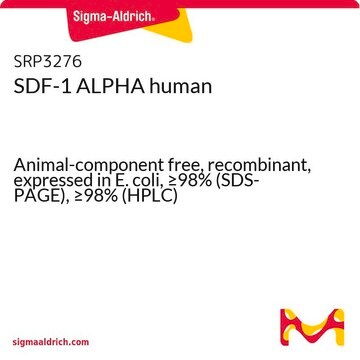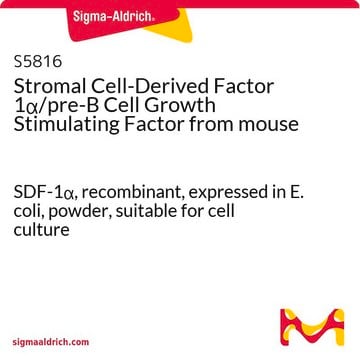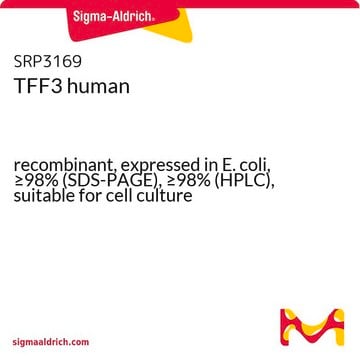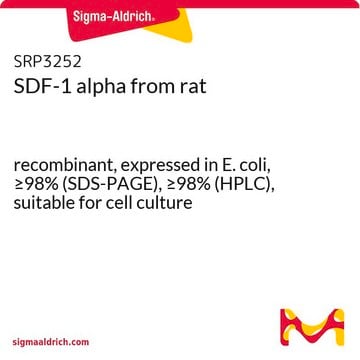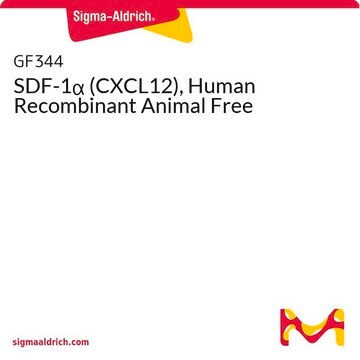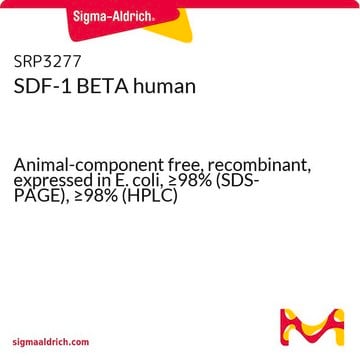S1577
Stromal Cell-Derived Factor 1α/pre-B Cell Growth Stimulating Factor human
recombinant, expressed in E. coli, lyophilized powder, ≥97% (SDS-PAGE), suitable for cell culture
Synonym(s):
SDF-1, SDF1, SDF-1α
About This Item
Recommended Products
biological source
human
Quality Level
recombinant
expressed in E. coli
Assay
≥97% (SDS-PAGE)
form
lyophilized powder
potency
≤50 ng/mL EC50
packaging
pkg of 10 μg
storage condition
avoid repeated freeze/thaw cycles
technique(s)
cell culture | mammalian: suitable
impurities
≤1 EU/μg protein Endotoxin
color
white
UniProt accession no.
shipped in
dry ice
storage temp.
−20°C
Gene Information
human ... CXCL12((6387)
General description
Biochem/physiol Actions
Physical form
Reconstitution
Storage Class Code
11 - Combustible Solids
WGK
WGK 3
Flash Point(F)
Not applicable
Flash Point(C)
Not applicable
Certificates of Analysis (COA)
Search for Certificates of Analysis (COA) by entering the products Lot/Batch Number. Lot and Batch Numbers can be found on a product’s label following the words ‘Lot’ or ‘Batch’.
Already Own This Product?
Find documentation for the products that you have recently purchased in the Document Library.
Protocols
Learn how to perform cell migration assays in vitro using Millicell® hanging cell culture inserts and the suspension T-cell lines Jurkat and primary CD4+ cells. Monitor migration by flow cytometry and EZ-MTT assays.
Learn how to perform cell migration assays in vitro using Millicell® hanging cell culture inserts and the suspension T-cell lines Jurkat and primary CD4+ cells. Monitor migration by flow cytometry and EZ-MTT assays.
Learn how to perform cell migration assays in vitro using Millicell® hanging cell culture inserts and the suspension T-cell lines Jurkat and primary CD4+ cells. Monitor migration by flow cytometry and EZ-MTT assays.
Learn how to perform cell migration assays in vitro using Millicell® hanging cell culture inserts and the suspension T-cell lines Jurkat and primary CD4+ cells. Monitor migration by flow cytometry and EZ-MTT assays.
Our team of scientists has experience in all areas of research including Life Science, Material Science, Chemical Synthesis, Chromatography, Analytical and many others.
Contact Technical Service